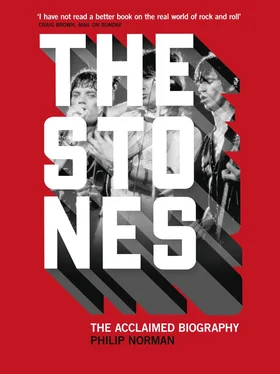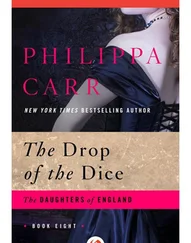Ten months later, the calamity of Dick Rowe’s decision confronted him each day of his working life. The Beatles had become the biggest thing in teenage entertainment since Elvis Presley. Dick Rowe had let them slip through his fingers and into the waiting clutches of Decca’s deadly rival, EMI.
For twenty years, these two companies had controlled British popular music, producing 95 per cent of all discs on their myriad labels as well as manufacturing the wireless sets, record players – and even needles – required to bring their product to life. Of the two, Decca seemed more wholeheartedly devoted to entertainment. The blue Decca label, the white Decca factory at Wimbledon, were synonymous with the age of the wind-up gramophone. Decca introduced the first long-playing record into Britain when EMI was still mainly an electrical company, manufacturing TV sets, radiograms and weapons systems for the then War Office.
Decca was the creation – and, substantially, the property – of Sir Edward Lewis, a white-haired, gangling man who, even on days that paid high dividends, was seldom observed to smile. For Sir Edward, recorded music was a commodity little different from soap or safety pins, and only really in tune if it harmonized with a good showing on the Stock Exchange, Sir Edward Lewis’s favourite place in the world. ‘I only ever knew of one person who could make him laugh,’ Dick Rowe remembered later. ‘That was Tommy Cooper. If Sir Edward ever left the office early, you could be sure Tommy Cooper was on television that night,’
Decca’s pre-eminence as a record company ended in 1954 with the arrival of Sir Joseph Lockwood, a successful flour miller, to the EMI chairmanship. Lockwood instantly halted EMI’s decline, ending the manufacture of radiograms and investing in a new record-pressing plant just in time for the first pop music boom. Sir Edward, for his part, took Lockwood’s success as a personal insult, and would speak of him only in the most slighting manner. He took some comfort from the fact that Lockwood, unlike himself, owned no substantial part of his company’s stock and was, therefore, ‘just an employee’.
Now, thanks to Dick Rowe, Lockwood had carried off the greatest prize of all. Not only the Beatles but all other northern groups and their new money-spinning sound seemed to have been engorged by EMI. No one wanted Decca after the preposterous mistake of its hapless A & R chief. ‘Things got so bad,’ a former Decca employee says, ‘that if a boy with a guitar had just walked along Albert Embankment past our office, the whole A & R staff would have rushed out to sign him up.’
Rowe’s only consolation was that no group, however big, could possibly appeal to British teenagers for longer than six months. He might have lost the Beatles, but he had a sporting chance of finding the next Beatles. It was to this objective that Rowe’s entire A & R department was now frenziedly devoted. Like every other record company, Decca had sent teams of talent scouts up to Liverpool to scour the Merseyside clubs and ballrooms. The fact that the Beatles’ home town was a seaport acted powerfully on the A & R men’s overheated minds. The search for new Beatles was widened to other seaports, Cardiff, Bristol and Southampton.
Dick Rowe himself was still drawn back, with remorseful fascination, to Liverpool. He was there again in the first week of May 1963, hoping to find the next Beatles in a talent contest he had been asked to help judge at the city’s Philharmonic Hall. To add to his discomfort, a Beatle, George Harrison, sat with him on the judging panel. Rowe remarked to George with a brave show of lightheartedness that he was still kicking himself. Though John Lennon had been heard to say he hoped the Decca man kicked himself to death, George seemed to cherish no animosity. ‘In fact,’ Rowe said, ‘he told me I’d been right to turn the Beatles down because they’d done such a terrible audition.’
Halfway through the talent contest, the next Beatles still had not materialized. George Harrison remarked to Dick Rowe that there was a group down in London he should consider signing; a group called the Rolling Stones who played each Sunday night at the Station Hotel, Richmond … When George turned round, he found he was talking to himself. Rowe’s chair was empty.
He remembered that, as he drove through Richmond after his headlong journey down from Liverpool, the sun was low in the sky, red and warm like a portent of redemption. ‘The sun was so bright that when I got into the club, I could hardly see anything at all. Just crowds of boys – I couldn’t see any girls. Crowds of boys, rising and falling on the balls of their feet.’ Unannounced – unnoticed in the Crawdaddy’s Sunday night crush – Dick Rowe stood and watched the five figures who were about to rescue his reputation.
Elated as he was, he forced himself to follow A & R protocol. ‘I’d never speak directly to a group that interested me. It was always to their agent or manager. I couldn’t find anything out in the club about who managed the Stones. Next morning, I was in my office at eight o’clock ringing round all the main agencies. No one I spoke to seemed to have heard of the Rolling Stones. Eventually someone said, “Try Eric Easton.” I knew Eric, of course. Once I’d spoken to him, the whole deal went through in a matter of days.’
Before the Stones could sign with Decca, one small difficulty had to be overcome. The tape of five songs they had recorded with Glyn Johns at IBC studios was still held by IBC, and could thus be termed a prior recording commitment. Eric Easton’s advice was that the Stones themselves should approach IBC, saying they had now split up and wanted to buy the tape back as a souvenir. An unsuspecting IBC agreed to return the tape for what it had cost in studio time: £109.
Within less than a week, Easton and Dick Rowe were concluding what Decca’s A & R chief presumed would be a straightforward two-year recording contract. If anything, Rowe considered, it showed largesse on Decca’s part. When Brian Epstein signed the Beatles with EMI, he had been forced, after many previous rejections, to accept a miserly rate of one old penny royalty per double-sided record, rising in yearly increments of one farthing. Rowe, therefore, felt it almost a point of honour to offer the Rolling Stones, however unknown and untried, the standard record royalty rate, five per cent of the retail price of each copy sold.
Thus far, Dick Rowe’s dealings had been with his pleasant and obliging contemporary, Eric Easton. The familiar process, of doing deals quietly over the heads of inexperienced boys, was now rudely shattered by Easton’s nineteen-year-old associate. Before Andrew Loog Oldham even walked into Decca he had imagined the film cameras starting to roll on yet another version of himself. ‘I’d decided I was going to be a nasty little upstart tycoon shit.’ At his first meeting with Decca’s managing director, Bill Townsley, Oldham sat down, uninvited, and coolly put his feet up on Townsley’s desk.
Dick Rowe gazed just as expressively at the fair-haired youth who had peremptorily cut across his genial suggestions to Eric Easton about possible dates for the Stones to cut their first record at Decca’s West Hampstead studios, and which of Decca’s staff producers might supervise them. Oldham replied that the Stones would not be using Decca studios and, while Rowe was still goggling, added that they did not need a producer. They already had one, named Andrew Loog Oldham.
Oldham had never forgotten the advice imparted to him in the depths of Phil Spector’s limousine. That advice was, simply, that all material taped in the studios of a record company remained the company’s copyright. By recording the Stones independently, then leasing the record ‘masters’ back to Decca for manufacture and distribution, Oldham would retain the copyright and, simultaneously, rob Decca of control over what was recorded. Such a deal had not been proposed in the whole history of British recorded music. It was a measure of Decca’s desperation to launch the ‘new Beatles’ that Oldham’s conditions were accepted.
Читать дальше












